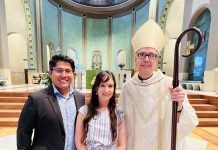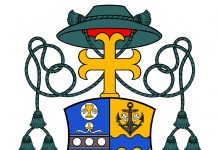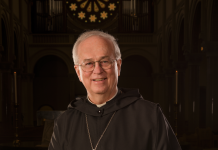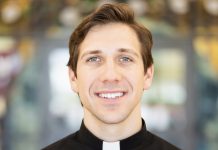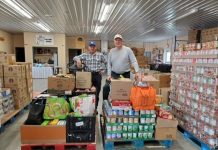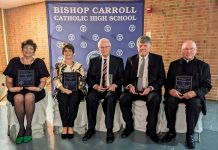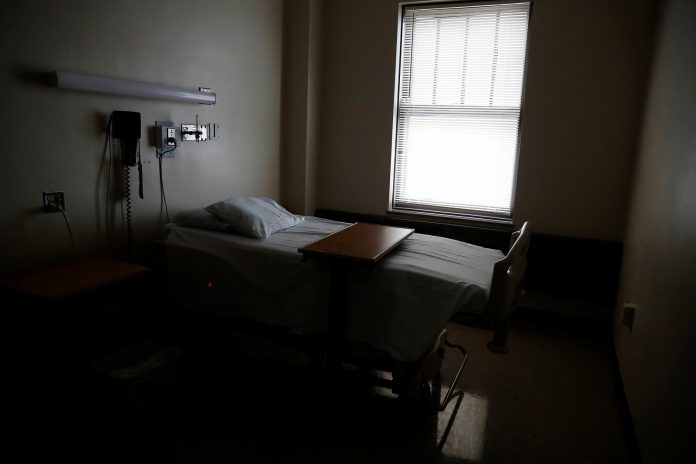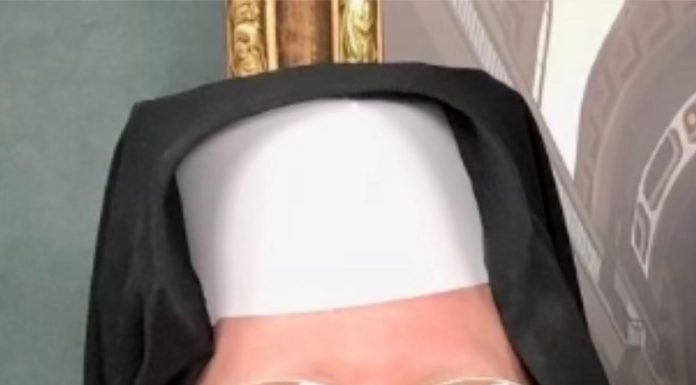By: Andy Telli
NASHVILLE, Tenn. (CNS) — Providing pastoral care for the sick and homebound during the COVID-19 pandemic is a challenge for priests, deacons and extraordinary ministers of the Eucharist.
“Everything is different now,” said Father Titus Augustine, pastor of St. Ignatius of Antioch Church in Nashville. “It’s a new world.”
“We can continue to serve the sick and the dying,” said Deacon Joe Holzmer, the pastoral care coordinator for the Diocese of Nashville. But restrictions put in place to prevent the spread of the COVID-19 virus have forced those ministering to the ill and homebound “to adapt to the environment we’re in.”
That means fewer in-person visits and more phone calls, he added.
“I still go to the hospital every day, not to see every Catholic, but for the serious cases,” he said. “I have Facetimed (patients) from the lobby out front.”
Most hospitals have restrictions on who can visit COVID-19 patients, noted Deacon Holzmer, who visits patients at Vanderbilt University Medical Center and also helps arrange visits by a priest for Catholic patients at other hospitals.
The deacon said there are other considerations a priest has to take into account before visiting a COVID-19 patient. If a priest is exposed to a COVID-19 patient, they have to go into quarantine for 14 days and while a priest is in quarantine, he is unavailable to meet other needs in the parish.
“That’s a big thing,” Father Augustine said. “I don’t have a helping hand here.” When he gets a call from a hospital, nursing home or hospice service, one of the first questions he asks is if the patient has the COVID-19 virus.
“It’s a big challenge for me,” Father Augustine said. “If they say I need to be there, I will be there for sure. It’s our duty. If people want to receive the sacraments, then we have to go.”
Many parishes have stopped sending extraordinary ministers of the Eucharist to patients in hospitals and nursing homes or the homebound.
“I have a handful of people who would bring Communion to nursing homes and the homebound, but they’re not doing it now,” Father Augustine said.
Before COVID-19, St. Stephen Catholic Community in Hermitage had a group of extraordinary ministers of the Eucharist who would visit a local hospital three days a week, said Deacon Steve Molnar from St. Stephen’s.
Another group would visit a retirement village on Sundays and others in the parish would visit the six nursing homes in the area around the church and the homebound.
“All that had to come to a screeching halt,” Deacon Molnar said, to protect the ministers and the people they are visiting. “I don’t want to be the reason anybody gets the coronavirus,” he said.
“It’s just frustrating,” he added. “It’s frustrating that people are out there and they’re not able to receive the body of Christ.”
Deacon Molnar first got involved in visiting the sick and homebound after visiting his mother in the nursing home and seeing patients who would never have a visitor, he said. “I thought, that’s just not right.”
He might not be able to visit people in person, but he continues to reach out to them with phone calls stressing that it’s “an important ministry.”
Although the work has been curtailed, the parish’s priests are still available to visit patients who need the sacrament of the Anointing of the Sick, Deacon Molnar said.
Caring for the sick and the dying is one of the reasons Father Augustine is a priest. “I love this ministry,” he said. “It’s important for me to see my people. It gives them a lot of peace. I just show them they are not alone. We are together in whatever suffering they are going through,” he added. “It eases their suffering.”
Father Augustine also ministers to the families of patients he visits, pointing out that it’s very hard on them.
The pandemic has forced some changes in how Deacon Holzmer carries out his ministry, but he is still reaching out to patients and families as he can.
“COVID has taken me away from the hospital a little bit,” he told the Tennessee Register, diocesan newspaper of Nashville.
He also said those patients that he gets to visit are “really looking at things that are important in life” such as family and where they grew up. “It gives them a chance to share a little bit of who they are and where God is in their life,” he said, adding that they “appreciate you being there.”
“I tell them what an inspiration they are for me. … They sure make me think about how blessed I am for having known them,” Deacon Holzmer said. “They can light up your life.”
Now, he admits the ministry is different and exhausting, but as he put it: “It’s still gratifying. It’s still right. ”
“It’s different,” he added. “It has just been a crazy world.”


